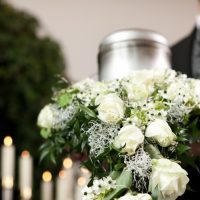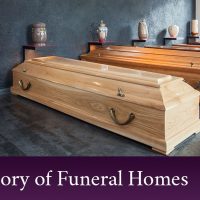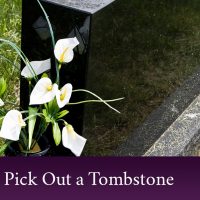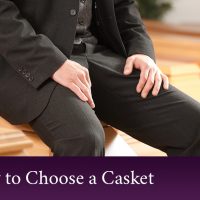Death, despite being a part of life, is not easy to deal with. Depending on your relationship with the deceased, dealing with death can be devastating. On top of mourning, you now have to deal with all the logistics that go along with the death of a loved one — namely funeral arrangements. From picking out a funeral home to choosing a date for visitation to picking out a cemetery, the decisions are endless.
Dolan Funeral Home is here to help. We are an all-inclusive funeral home service, offering pre-arrangement services, help with the financial aspects of a death, and all the services for the actual burial, including either embalming or cremation, casket selection, visitation and burial services. We also offer after-care services, helping you tie up all the loose ends after the death of a loved one, as well as advice on the will. Dolan Funeral Home serves the greater Lowell and Southern New Hampshire areas, including Chelmsford, North Chelmsford, Tyngsboro, Westford, Dunstable, Dracut, Lowell, and Hudson with funeral, burial, and cremation needs. Contact us today.
HOW TO PICK OUT A CASKET
Caskets have come along way since the sarcophagus of ancient Egypt. No longer are we in the days where four boards nailed together is in style (or what the majority of the population wants their loved one’s last remains to rest forever in). Modern caskets are built to withstand the harsh elements of the earth and allow your loved one to truly rest in peace. Below are tips for picking out a casket.
CASKET OR COFFIN?
While the word casket is often used interchangeably with coffin, there is an important difference between the two terms: a coffin is hexagonal or octagonal, while the casket is rectangular. In addition, a casket is different in that it usually has a split lid in order to view the body, while a coffin does not. Different parts of the world prefer one or the other. In the United States, we prefer caskets since saying good-bye to our loved ones visually is important.
MATERIALS A CASKET IS MADE FROM
- Wood caskets. Still a popular material to make a casket from, wood is a good choice for a solid casket. A variety of woods is used such as hard woods (oak, mahogany, and cherry) as well as the lighter woods (birch, maple, and pine).
- Metal caskets. Three types of metal are the most popular choice for caskets: standard steel, stainless steel, and copper or bronze. Standard steel is the least expensive type of steel caskets available, while stainless steel is more expensive because it’s more durable. Both come in different gauges to suit your needs. As you might have guessed, copper and bronze are the most expensive since they are high-quality metals. Copper and bronze caskets are extremely resistant to rust unlike steel. That being said, both copper and bronze caskets will still oxidize and break down in a manner similar to rusting, but it will take a long longer before this happens. These two types of caskets are measured by weight, which also ups the price.
- Eco-friendly. Materials that are environmentally friendly are increasing in popularity as consumers are more conscious of preserving our resources for the next generation. Wicker caskets made from bamboo, willow, or seagrass are now available. Despite how flimsy they sound, cardboard caskets are surprisingly well-made and are easily customizable with a digitally-printed design.
- While not technically a casket, Dolan Funeral Home thinks burial shrouds are worth mentioning as an alternative to expensive traditional casket materials. Made from wool, cotton, linen, and silk, burial shrouds harken back to ancient times and are wonderful for their simplicity. They are also surprisingly peaceful and elegant.
- If your heart is set on a traditional wood coffin, a coffin or casket made from sustainably sourced wood is still environmentally friendly. The wood is typically 80 percent waste wood (wood combined from other pieces of wood that are too small to make much of) and 20 percent FSC-certified wood (wood that is certified for being harvested in a sustainable manner by the Forest Stewardship Council). Add a biodegradable cotton lining for complete recycled materials.
CASKETS FOR CREMATIONS
Yes, this sounds paradoxical, but if you opt for cremation, you may still want a casket or coffin to hold your loved one in. Known as a cremation casket, these caskets are made specifically to be cremated along with your loved one after the service. Cremation caskets come in a variety of materials as well such as wood, cardboard, or fiberboard.
Another option is a rental casket. This choice is not as far-reaching as you think. Rental caskets are rented usually from the funeral home for the sole purpose of having a nice casket for your loved one during the funeral service. Rental caskets are crafted to include an insert for the cremation casket, so the cremation casket can be placed inside the ceremonial casket for the service. After the service, the cremation container would be removed for cremation. One last alternative is to use a rental casket for the funeral service just to hold your loved one, and then you would have your loved one removed, cremated, and placed in a different holding container such as an urn.
GASKET OR NON-GASKET?
Metal caskets come with the option of having a gasket or not. A gasket is a special seal designed to keep out the elements and preserve your loved one longer. As most of us know, the natural process of decomposition can only be delayed, not stopped permanently as we’ve all seen from the Egyptian mummies. A gasketed casket is also called a protective casket, which adds to the overall cost of your casket.
SELECTING A COFFIN
Now that you have the different types and varieties of caskets and coffins in mind, you’re ready to select your coffin. Federal law dictates that the funeral director must show you a list of caskets available before you see the actual caskets. This stems from the past where funeral directors would sell the most expensive coffins to customers without offering them options.
At Dolan Funeral Home, we have a showroom with a wide variety of wood and metal caskets for you to view in person. We also have several casket catalogs for you to peruse and order from. It is permissible for the family to make a casket, provided it is delivered to the funeral home and a waiver of liability is signed.
FINAL TIPS FOR PURCHASING A CASKET
Caskets can be one of the most expensive parts of a funeral home service and funeral home expenses overall. You’ll want to take your time and look over your options. Don’t choose the first one you come across. Inquire of the price and all your options, and ask the funeral director if you have questions. Your loved one deserves the best, and Dolan Funeral Home in Chelmsford is dedicated to helping you through the funeral home service process from start to finish. We’re open every day of the year to serve your needs. As a full service, family-owned funeral home, we understand the grief process, and we’re here to help with all the logistics during this trying time. Contact us today for all your planning a funeral needs!
















